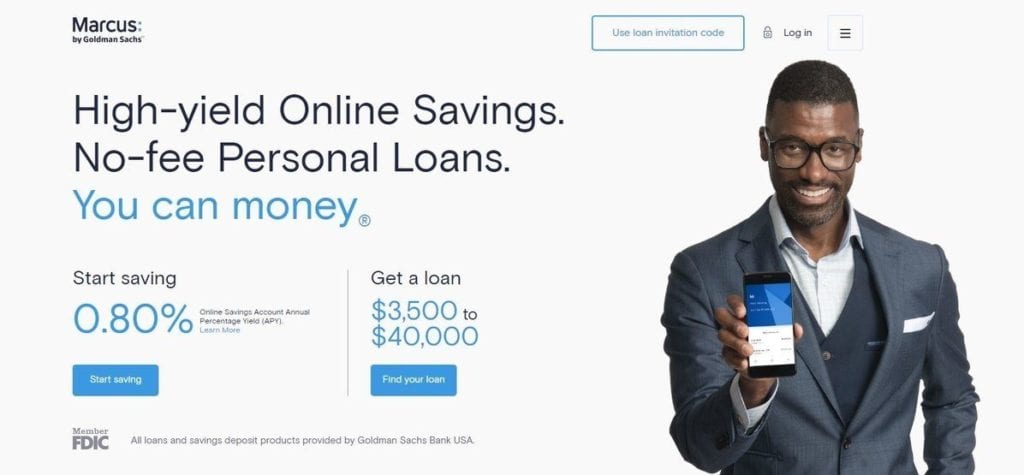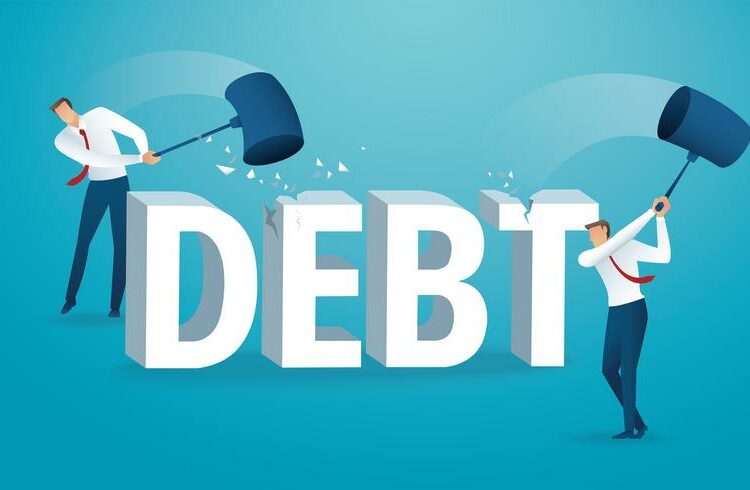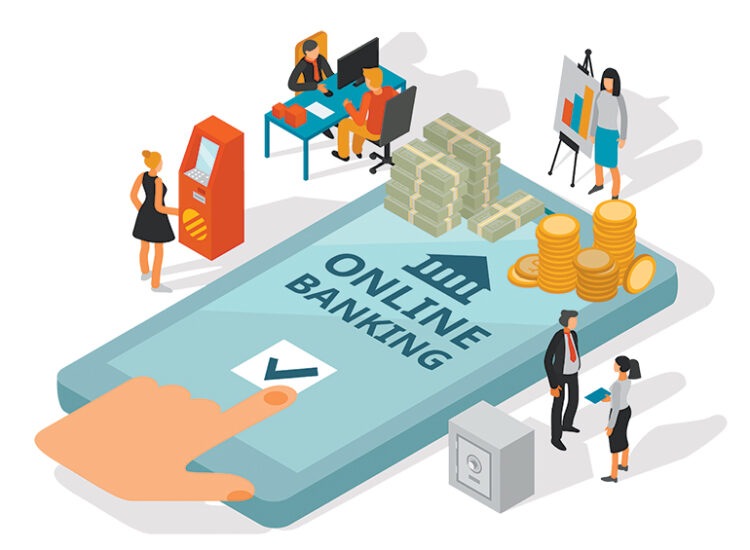Securing a traditional business loan can be a daunting task, especially for entrepreneurs with limited assets. However, unsecured business loans offer a viable alternative, providing access to much-needed capital without the requirement of collateral. These loans, often offered by online lenders and alternative financing platforms, have gained popularity in recent years, catering to the needs of small businesses with minimal assets.
Toc
- 1. Understanding Unsecured Business Loans
- 2. Benefits of Unsecured Business Loans
- 3. Related articles 01:
- 4. Types of Unsecured Business Loans
- 5. Qualifying for an Unsecured Business Loan
- 6. Related articles 02:
- 7. Finding the Right Unsecured Business Loan Lender
- 8. Risks of Unsecured Business Loans
- 9. Conclusion
Understanding Unsecured Business Loans

An unsecured business loan is a financing option that allows small business owners to obtain funding without the need to pledge collateral, such as property or equipment. Instead, lenders evaluate the borrower’s creditworthiness, financial history, and overall business strength. This approach can be particularly beneficial for entrepreneurs who lack significant assets or prefer not to risk their personal property.
Secured vs- Unsecured Loans
Understanding the key differences between secured and unsecured loans is crucial for any business owner. Secured loans, such as mortgages or equipment financing, require the borrower to provide collateral, which the lender can seize if the borrower defaults. Unsecured loans, on the other hand, do not have this requirement, making them more appealing to small business owners with limited assets.
| Secured Loans | Unsecured Loans |
|---|---|
|
Require collateral |
No collateral required |
|
Typically lower interest rates |
Higher interest rates |
|
Higher credit limits |
Lower credit limits |
|
Easier to qualify for |
Stricter credit requirements |
Advantages of Unsecured Business Loans
One of the primary advantages of unsecured business loans is the speed and ease of obtaining them. Traditional loans often involve lengthy application processes and significant documentation, but unsecured loans can be approved much faster, sometimes within a day. This quick access to funds can be crucial for small businesses needing to address cash flow issues, seize new opportunities, or cover unexpected expenses. Additionally, unsecured loans often offer flexible terms in terms of repayment schedules, allowing business owners to choose a plan that aligns with their financial situation.
Considerations and Risks
While unsecured business loans can provide essential financial support, entrepreneurs must consider the associated risks. Since these loans do not require collateral, lenders often impose higher interest rates to mitigate their risks. This can result in higher overall borrowing costs. Additionally, the focus on credit history and financial strength means that businesses with lower credit scores might find it more challenging to secure favorable terms. Careful assessment of the repayment terms and ensuring that the business’s financial situation can support the loan’s costs are crucial steps before committing to an unsecured business loan.
Benefits of Unsecured Business Loans

Opting for an unsecured business loan comes with several key advantages:
1. https://docluat.vn/archive/3865/
2. https://docluat.vn/archive/3857/
3. https://docluat.vn/archive/3862/
No Collateral Required
While unsecured loans offer the significant benefit of not requiring any form of collateral, it’s important to note that these loans come with other demanding requirements. Lenders often seek strong credit scores and a proven business history as a safeguard against risk. Even though you won’t have to put your personal or business assets on the line, this does mean you need to show that you’re a responsible borrower. The absence of collateral gives business owners peace of mind and financial flexibility, allowing them to pursue opportunities without the fear of losing their personal property or business assets if they face challenges down the road.
Faster Approval Process
One of the standout features of unsecured loans is the speed of the approval process. Compared to secured loans, which may require extensive documentation and lengthy evaluations, unsecured loans often have a more streamlined application procedure. Many online lenders can approve loans within a remarkable 24-48 hours, which is a game-changer for businesses that need quick access to funds. In contrast, traditional banks may take several weeks to process applications, which could hinder a business’s ability to respond to urgent financial needs or seize time-sensitive growth opportunities. This quick turnaround time can make all the difference in a competitive market.
Flexibility in Use
Unsecured business loans typically come with fewer restrictions on how the funds can be utilized, which adds another layer of appeal for entrepreneurs. This flexibility means that business owners can allocate resources according to their most pressing needs, whether that’s covering operational expenses, launching innovative marketing initiatives, or making capital investments to upgrade equipment or expand their offerings. This level of autonomy allows businesses to be more agile and responsive to changing demands in the marketplace.
Potential to Build Credit
Another significant advantage of responsibly repaying an unsecured business loan is the positive impact it can have on a borrower’s credit profile. By making timely payments, business owners can enhance their credit score and establish a solid credit history, which is crucial for future financial endeavors. A better credit score not only improves the likelihood of qualifying for other financing options, such as larger secured loans or lines of credit, but it can also lead to lower interest rates and better terms. Ultimately, this can provide more financial leverage and opportunities for growth in the future.
Types of Unsecured Business Loans
Small business owners have a variety of unsecured loan options to consider, each with unique features:
Small Business Administration (SBA) Loans
SBA loans, particularly the 7(a) program, offer government-backed unsecured business loan options with competitive interest rates and favorable repayment terms. While eligibility requirements can be stringent, those who qualify may find these loans to be an excellent financing choice.
Business Lines of Credit
A business line of credit functions similarly to a credit card, providing access to a pre-approved amount of funds that can be drawn upon as needed. Interest is only paid on the borrowed amount, making this a flexible and cost-effective solution for managing cash flow or funding short-term projects.
Term Loans
Unsecured term loans provide a lump sum of capital that borrowers repay over a specified period, typically between one to three years. These loans are suitable for financing particular business needs, such as purchasing equipment or funding expansion initiatives.
Invoice Factoring
Invoice factoring allows businesses to sell outstanding invoices to a factoring company in exchange for immediate cash. This option can be invaluable for companies with strong accounts receivable but limited cash flow, enabling them to access funds quickly.
Merchant Cash Advances
Merchant cash advances offer upfront funding in exchange for a percentage of future credit or debit card sales. Although this option provides quick access to cash, it often comes with higher interest rates compared to other unsecured loan options.
Peer-to-Peer (P2P) Lending
P2P lending platforms connect small business owners with individual investors willing to provide unsecured loans. While these loans may carry higher interest rates, they can be more accessible for businesses with less-than-perfect credit histories.
Revenue-Based Financing
Revenue-based financing is a newer and increasingly popular type of unsecured financing. This option allows businesses to repay their loans based on a percentage of their revenue, rather than a fixed monthly payment, providing more flexibility in repayment.
Qualifying for an Unsecured Business Loan

When applying for an unsecured business loan, lenders typically assess several critical factors:
Credit Score and History
Your personal and business credit scores are pivotal in determining not only your eligibility for an unsecured business loan but also the terms of that loan, including interest rates and credit limits. Lenders meticulously analyze credit reports to assess your creditworthiness, looking for a strong credit history that reflects responsible borrowing behaviors, such as maintaining low credit utilization ratios and making timely repayments. A higher credit score can be a significant advantage, showcasing your reliability to potential lenders.
Business Revenue and Profitability
When evaluating your application, lenders will meticulously examine your business’s financial health, looking for signs of strong revenue and consistent profitability. They’ll review financial statements, including profit and loss statements, cash flow forecasts, and tax returns, to gauge your overall financial performance. This thorough evaluation helps them assess your capability to meet loan repayment obligations, as businesses demonstrating steady growth and adequate cash flow are generally seen as lower-risk investments.
Business Plan and Growth Strategy
A well-structured business plan that outlines your growth strategy, target market, and potential for expansion can significantly enhance your chances of securing an unsecured loan. This document serves as a roadmap for your business and demonstrates your vision and preparedness to succeed. Including detailed market research, competitive analysis, and financial projections can provide lenders with a clearer understanding of your business’s potential and your strategic approach to achieving your goals.
1. https://docluat.vn/archive/3864/
2. https://docluat.vn/archive/3865/
3. https://docluat.vn/archive/3858/
Time in Business
Established businesses with a solid track record are often viewed as less risky by lenders, primarily due to their proven history of operations and profitability. If your business has been operating for a while, you may find it easier to qualify for an unsecured business loan. Lenders often prefer to work with businesses that have demonstrated stability and resilience in their respective markets, as this reassures them of your ability to adapt to challenges and continue servicing the loan.
Industry and Market Trends
The stability of the industry you operate in, along with the current economic climate, can also significantly influence a lender’s decision. Lenders are more inclined to finance businesses in growing sectors, such as technology or healthcare, as these industries typically show greater potential for profitability and stability. Conversely, businesses in unstable or declining industries may face more scrutiny and tougher lending conditions. Staying informed about industry trends and demonstrating how your business adapts to market changes can strengthen your application.
Finding the Right Unsecured Business Loan Lender

When searching for an unsecured business loan, it’s essential to conduct thorough research to identify the best lender for your needs. Here are some tips:
Research and Compare Lenders
Taking the time to thoroughly compare interest rates, fees, repayment terms, and customer satisfaction ratings across various lenders is crucial for making an informed decision. This includes evaluating both traditional banks, which often have established reputations, and online alternative finance providers, which may offer competitive rates and innovative solutions. Look for detailed comparisons and consider creating a spreadsheet to track your findings, as this can help you visualize your options more clearly.
Consider Online Lenders and Alternative Financing Options
Online lenders and alternative financing platforms have become increasingly popular, often providing more flexible and accessible unsecured loan business options. These platforms typically utilize more streamlined application processes and faster funding times, which can be particularly beneficial for small businesses that need quick access to capital. Additionally, they may offer tailored solutions for specific industries, helping businesses find the best fit for their unique needs.
Check Lender Reviews and Testimonials
Reading reviews and testimonials from other borrowers can provide valuable insights into a lender’s reputation, customer service quality, and overall borrowing experience. Look for feedback on platforms such as Trustpilot or Google Reviews, where you can find detailed accounts of others’ experiences. Pay attention to recurring themes in the reviews, such as responsiveness, transparency in fees, and the ease of the application process, as these factors can significantly influence your overall satisfaction with the lender you choose.
Risks of Unsecured Business Loans

While unsecured business loans offer significant benefits, such as quick access to funds and less stringent approval requirements, it’s crucial to thoroughly understand the potential risks involved:
Higher Interest Rates
Unsecured loans typically come with higher interest rates compared to secured loans, as lenders assume greater risk without collateral backing the loan. This means that the cost of borrowing can be significantly higher, which may affect your overall cash flow and profitability. If you’re considering an unsecured loan, it’s important to shop around and compare rates from different lenders to ensure you’re getting the best deal possible.
Potential for Personal Liability
Some lenders may require a personal guarantee, which means you could be held personally responsible for the loan if your business fails to repay it. This can put your personal assets at risk, including savings, property, and other investments. It’s vital to carefully assess your business’s financial stability and your ability to repay the loan before agreeing to such terms, as this could have long-lasting implications on your personal financial situation.
Impact on Credit Score
Failing to make timely payments on an unsecured business loan can severely impact both personal and business credit scores, making it more challenging to secure future financing. A lower credit score can lead to higher interest rates on future loans and may even result in difficulties when trying to rent commercial space or negotiate favorable terms with suppliers. Maintaining a strong payment history is essential for the health of both your business and personal credit profiles, so it’s important to ensure you have a solid plan for repayment before taking on additional debt.
In summary, while unsecured business loans can provide the necessary capital to grow and sustain a business, it’s essential to weigh these risks carefully to make informed financial decisions.
Conclusion
Unsecured business loans represent a valuable financing option for small business owners seeking to grow their ventures without the burden of collateral. By understanding the benefits, risks, and various types of loans available, you can make informed decisions that align with your business goals.
Take the time to research and compare different lenders, including traditional banks and online alternative finance providers. Consulting with financial advisors can also provide personalized guidance to help you navigate the complexities of unsecured business loans. Start exploring your options today and unlock your business’s potential with the right financing solution.





